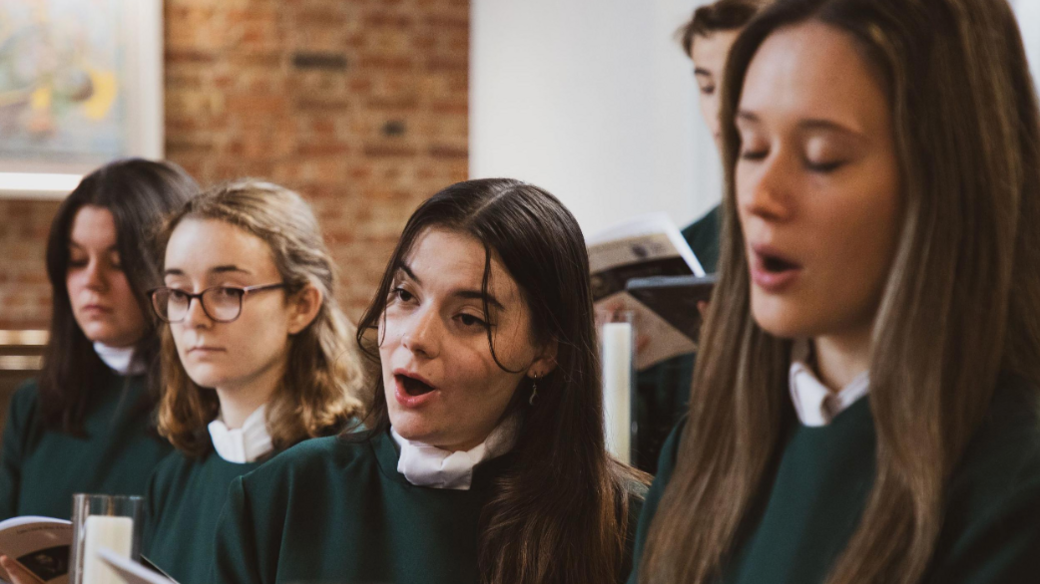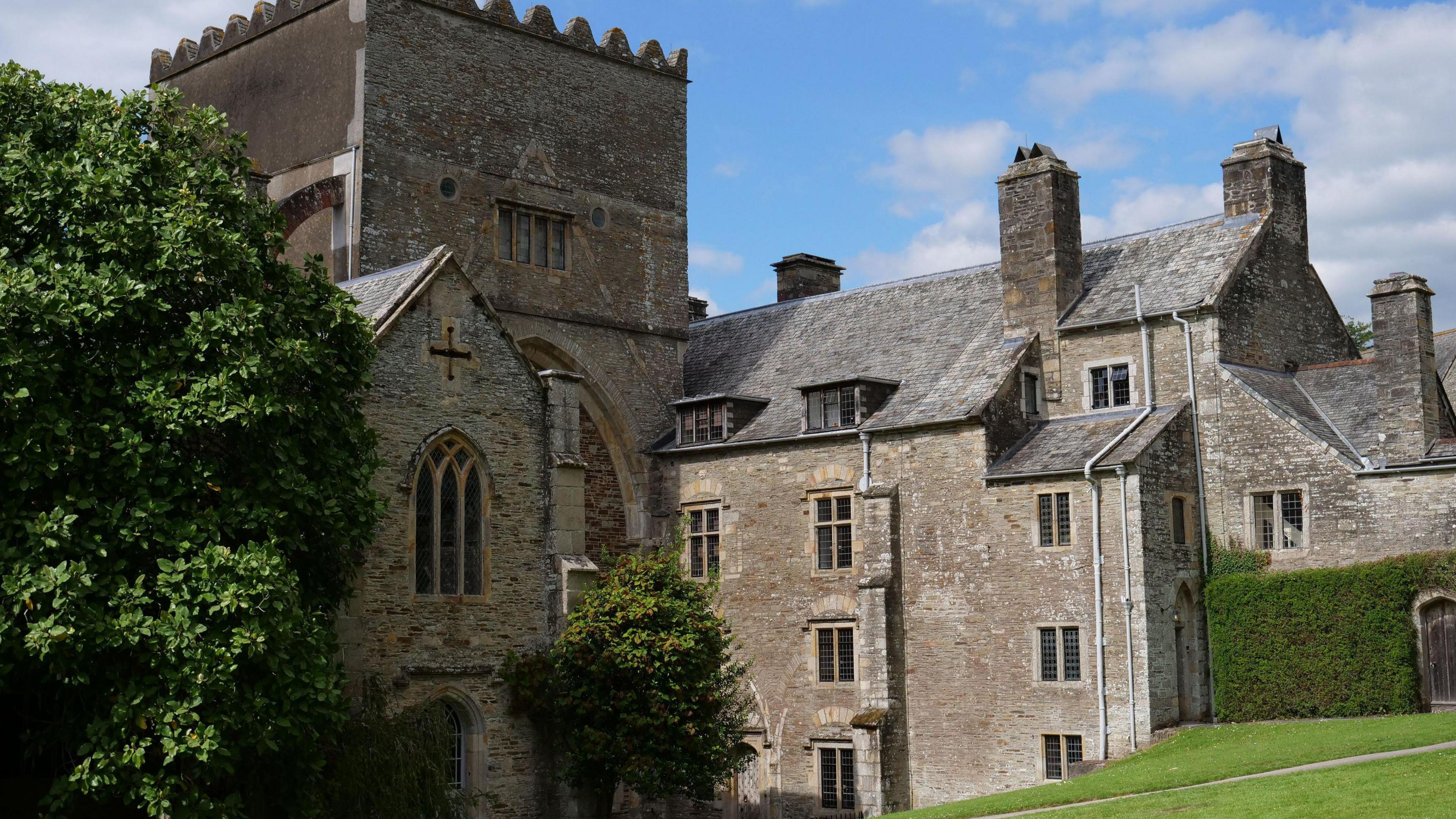Monk music to be played after almost 500-year gap

The University of Exeter's chapel choir will perform the music found in a 15th Century book
- Published
Rare music is set to be played at a Devon abbey for the first time in almost 500 years after it was found in a medieval book.
A "plaintive" music performance by the University of Exeter's chapel choir has been scheduled in August at the National Trust's Buckland Abbey in Yelverton.
The performance has been set up to celebrate the return of a book to the abbey for the first time since 1539.
The music was discovered by University of Exeter historian Prof James Clark inside the 15th Century book, which is being loaned to the abbey by the British Library.
'Very exciting'
The National Trust has worked with experts at the University of Exeter to prepare the music from the book, which was sold to the British Library in 1753.
National Trust music historian Daisy Gibbs said: "Whoever compiled this collection seems to have been unusually creative, pulling together words and music from many different sources."
Prof Clark said it was "very exciting" to recover the music.

The book in which the music was found is being loaned to Buckland Abbey by the British Library
He added: "Before the Tudor Reformation, in every part of England and Wales there were places like this dedicated to creative music-making and performance.
"Through this research we can now learn much more about this tradition and what it meant not only for the musicians but also for the surrounding communities that shared in their art."
Known as a "customary", the richly decorated Buckland Book contained the instructions the monks needed to carry out their daily religious rituals and services.
It also contained a rare collection of medieval music copied and added to the book in the early Tudor period.
The music is in a style called "plainchant", with single lines of music for monks or priests to sing all together.
Rather than following the rigid liturgical structure of the time, with particular pieces sung at different times of the day, the monks curated a unique sequence of chants drawn from various sources.
The music may have been used to help the Cistercian monks through a crisis, such as during a sickness outbreak.
Much of this type of music was lost or destroyed during the Reformation, which saw every priory and abbey in England closed by Henry VIII.
Follow BBC Devon on X, external, Facebook, external and Instagram, external. Send your story ideas to spotlight@bbc.co.uk, external.
Related topics
- Published3 January 2016

- Published10 June 2014
- Published18 March 2013